Sempervivum, Jovibarba houseleek, hens and chicks
Sempervivum,
When I was little, my aunt would take me to the garden to admire the flowers and share in the joy of watching them grow. I loved it, but I was still just a little rascal and sometimes, a bit of an unintentional troublemaker. Take, for example, the time I peeled open the flower buds of ornamental poppies to see what colour they'd be. Well, turns out they wouldn’t be any colour at all – because I had ripped them off too soon… And my aunt would scold me: “Milan, leave them alone! Off you go, make trouble somewhere else!”
So, off I went. And the first plant I ever truly succeeded with was houseleek (hens and chickens). I must have been around ten years old when my neighbourhood friends and I discovered them growing on a cemetery wall. Naturally, we stole a few, and each of us planted them at the edge of our (or rather our mothers') flower beds. For the other kids, that was the end of the adventure, and they quickly moved on to some other mischief. But as for me, I was hooked.
That tiny patch of soil my mom let me experiment with soon wasn’t enough. I gradually started claiming more and more centimetres of the garden, because the baby houseleeks (or should I say chickens?) kept growing and needed space to spread. These simple yet fascinating plants were so vigorous and effortless that I fell in love with them and started collecting them. Even now, I remember the sheer joy these humble little succulents brought me – their growth, their resilience, their vitality. And today, I look back at those moments as my true gardening beginnings. And really, what kind of gardener would I be if I didn’t offer them at our nursery, considering how much I love them?
Houseleek, also known as hens and chickens, actually belongs to two genera – Sempervivum and Jovibarba. They are so similar that the horticultural trade does not generally differentiate between them, possibly because Sempervivum is an accepted synonym for Jovibarba. Houseleek originates from mountainous regions of Asia, Central Russia, and almost all of Europe. It is an evergreen, thick-leaved succulent with beautiful rosettes of colourful foliage. Several species, along with numerous varieties and hybrids, are known, many of which display a mix of green, silvery blue, deep red, pink, and burgundy tones. Multi-coloured forms are especially popular, as well as hairy types like S. arachnoideum, which dislike excessive winter moisture.
Several species and numerous varieties and hybrids are known, many of them combining shades of green, silvery blue, various depths of red, even pink and burgundy red. Multicoloured forms are very popular as well as hairy types (s.arachnoideum - these dislike winter wet). Some leaves are solid-coloured, but more often they have contrastingly tinted tips, and sometimes the colours gradually blend toward the leaf base. And they change throughout the season.
Each plant blooms a little differently. Most commonly, they develop upright, very thick flower stems, topped with star-shaped flowers in white, yellow, red, or purple. Flowering begins in mid-summer. Some low-growing, ground-covering types produce flowers just above their leaf rosettes, like stonecrops. The mother plant, once it has flowered, dies (its similarity to succulents like agave is no coincidence). However, before withering, it produces enough offshoots with young plants that continue to grow.
Houseleek is incredibly easy to grow. Simply plant it in gritty, well-draining soil under full sun, and it will thrive with minimal care. No special requirements. Fertilization is optional – use it if you want larger plants and faster spreading, but it is not necessary for healthy growth. Houseleek spreads gradually, producing small, spherical offshoots attached by thin, wiry stems. These dry out once the new plant touches the soil and has grown large enough to establish its own roots. Houseleek is typically very hardy, tolerating temperatures down to at least -34 °C (USDA Zone 4). However, some species and cultivars may be either more resilient or slightly less cold-tolerant than others.
Apart from specialist growers and collectors, the current trade practice among most European suppliers is to sell plants in mixed trays, often without variety names. To differentiate them here, we list them by colour, attaching a photograph of each plant so you can see exactly what we are selling. This way, you can place an order for the specific plant you want, based on the picture provided.
Last update 07-12-2016, 09-06-2025






























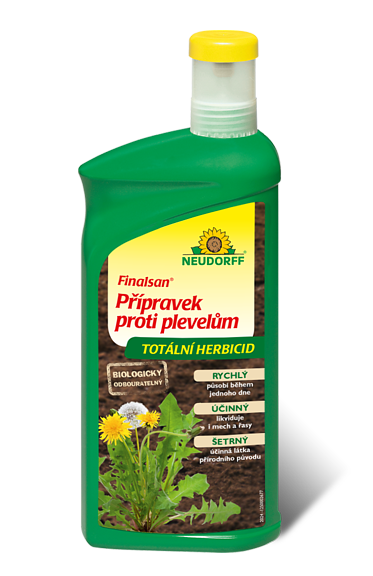


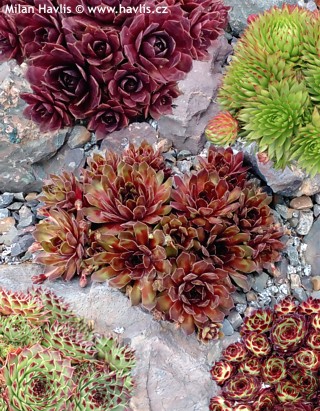
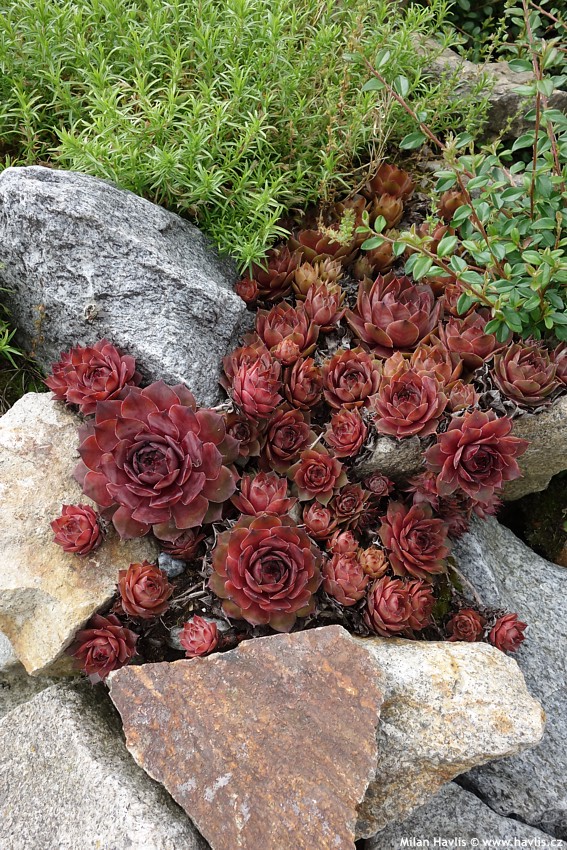
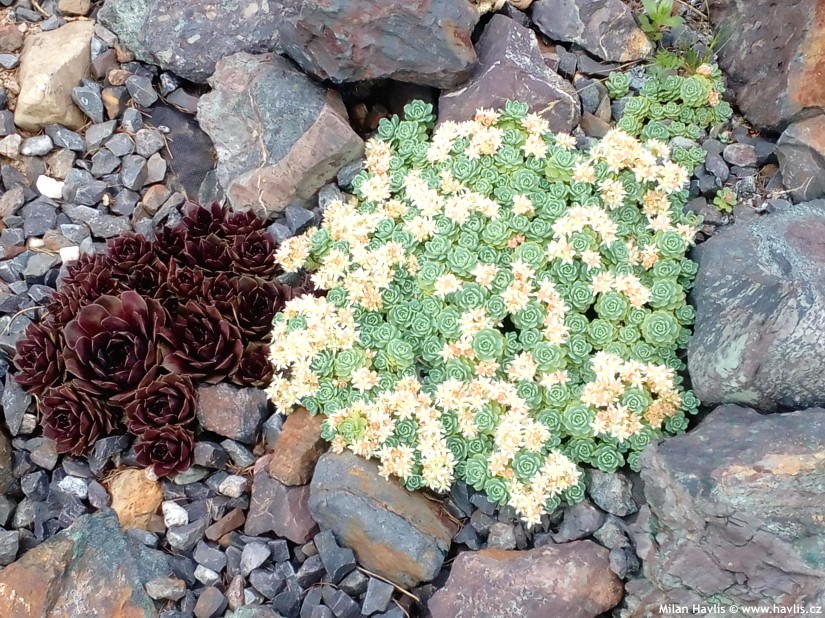
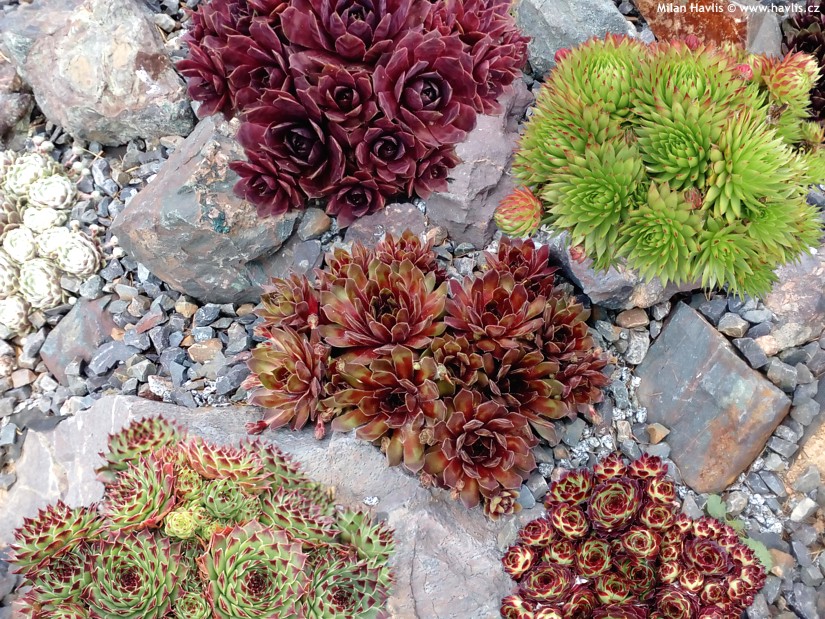


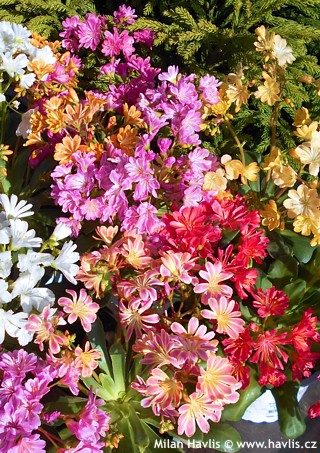
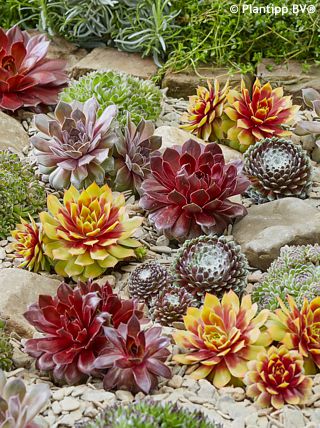
.jpg)
